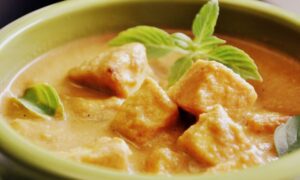When it comes to delicious and satisfying meals in India, rice is the undisputed king of the kitchen. From mouthwatering biryanis to steaming plates of pulao, rice is an essential part of our daily diet. Among the various rice varieties, Basmati rice holds a special place due to its unique flavour and aroma. But did you know that long grain basmati rice is not just a treat for your taste buds, but it also offers a host of nutritional benefits? In this blog, we’ll explore the nutritional benefits of Basmati, shedding light on how this aromatic grain can be a healthy addition to your plate.
Aromatic Elegance: The Allure of Basmati Rice
Before diving into its nutritional benefits, let’s take a moment to appreciate what makes long grain basmati rice truly special. Its name, “Basmati,” means “fragrant” in Hindi, and it lives up to this moniker. When you cook Basmati rice for biryani, your kitchen fills with a delightful aroma that’s hard to resist. This enchanting fragrance is due to the presence of a natural compound called 2-acetyl-1-pyrroline. This unique feature sets Basmati rice apart and makes it a popular choice in Indian households.
But it’s not just about the fragrance. Basmati offers a range of nutritional advantages that make it a staple in the Indian diet.
Basmati Rice: A Nutrient-Rich Delight
Low in Fat and High in Energy: A 100-gram serving of cooked Basmati provides around 130 calories. It’s low in fat, making it an excellent choice for those looking to maintain a healthy weight. The energy it provides is perfect for fueling your day, whether you’re headed to work, hitting the gym, or preparing for a cricket match with friends.
Good Source of Carbohydrates: Basmati is primarily a carbohydrate-rich food. Carbohydrates are the body’s primary source of energy, and they’re essential for daily activities. The carbohydrates in Basmati are complex, which means they release energy slowly, keeping you full and satisfied for longer.
Fibre for Digestive Health: Though not as high in fibre as brown rice, Basmati does contain some dietary fibre. This promotes healthy digestion and prevents constipation. It’s the perfect choice for those who prefer white rice but still want some fibre in their diet.
Rich in Vitamins and Minerals: Basmati is a good source of B vitamins, including niacin (vitamin B3) and thiamine (vitamin B1). These vitamins play a crucial role in converting food into energy and maintaining healthy skin, hair, and eyes. Additionally, it contains essential minerals like magnesium, which is essential for muscle function and bone health.
Gluten-Free Option: For those with gluten sensitivities or celiac disease, Basmati rice for biryani is a safe and delicious choice. It’s naturally gluten-free, making it suitable for individuals who need to avoid gluten in their diet.
Controlling Blood Sugar with Basmati Rice
It’s common knowledge that Indians adore their rice, but there’s often concern about its impact on blood sugar levels. Interestingly, Basmati has a lower glycemic index (GI) compared to other rice varieties. Basmati’s lower GI means it has a gentler impact on blood sugar, making it a smart choice for individuals who need to manage their blood sugar levels.
However, it’s important to note that cooking and preparation methods can affect the GI of rice. To maintain its low GI, avoid overcooking and opt for healthier cooking methods like steaming or boiling.
Healthy Eating Habits with Basmati Rice
Incorporating Basmati into your diet doesn’t mean loading up on endless servings of biryani (although an occasional indulgence is perfectly acceptable!). Here are some tips to make Basmati rice for biryani a part of a balanced, nutritious diet:
Portion Control: Controlling the portions is key when it comes to basmati as well. A typical serving of cooked Basmati is around 1/2 to 3/4 cup. This allows you to enjoy its deliciousness without overindulging.
Pair with Vegetables: Vegetables add extra nutrients, fibre, and flavour to your long grain basmati rice dishes. Whether it’s a simple peas pulao or a vegetable biryani, the combination of rice and vegetables makes for a balanced meal.
Lean Proteins: Complement your Basmati with lean proteins like chicken, fish, or tofu. This ensures you get a well-rounded meal with protein, carbohydrates, and essential nutrients.
Choose Whole Grains: For those looking for an even healthier option, consider combining Basmati with whole grains like quinoa or brown rice. This adds extra fibre and nutritional value to your meal.
Basmati Rice in Indian Cuisine
Basmati isn’t just a blank canvas for your favourite curries and gravies; it plays a starring role in various Indian dishes. Here are a few popular recipes that showcase the versatility of Basmati:
Biryani: The crown jewel of Indian cuisine, biryani is a delectable mix of Basmati, flavorful spices, and marinated meat or vegetables. The long grains of Basmati rice for biryani perfectly absorb the rich flavours, creating a dish that’s fit for royalty.
Pulao: Whether it’s a simple peas pulao or a fragrant mushroom pulao, these rice dishes are a fantastic way to enjoy the aroma and taste of Basmati with minimal effort.
Jeera Rice: Cumin seeds sizzle in hot ghee or oil before the rice is added, imparting a unique earthy flavour. Jeera rice is a delightful accompaniment to various Indian curries.
Kheer: Don’t forget the sweet side of Basmati! Kheer, a traditional Indian rice pudding, is a must-try dessert made with milk, sugar, and aromatic spices.
A Wholesome Choice
In conclusion, long grain basmati rice is not just a tasty grain; it’s a wholesome choice for your daily meals. It offers an array of nutritional benefits, from providing energy and essential vitamins to being gluten-free and diabetes-friendly. The fragrant elegance of Basmati rice can turn an ordinary meal into an extraordinary experience, and its versatility in Indian cuisine is truly unparalleled.
So, the next time you savour a plate of biryani or a bowl of pulao, know that you’re not only indulging your taste buds but also nourishing your body with the goodness of Basmati. In the colourful mosaic of Indian cuisine, Basmati stands tall as a nutritious and aromatic gem.
Remember, a well-balanced diet is like a harmonious melody, with each ingredient playing its unique part. Long grain basmati rice, with its exquisite fragrance and nutritional prowess, is an essential note in the symphony of Indian flavours.
Now, it’s time to head to the kitchen and whip up a delightful Basmati dish that not only tickles your taste buds but also celebrates the rich tradition of Indian cuisine while nourishing your body. Enjoy every aromatic, flavorful, and nutritious bite!



